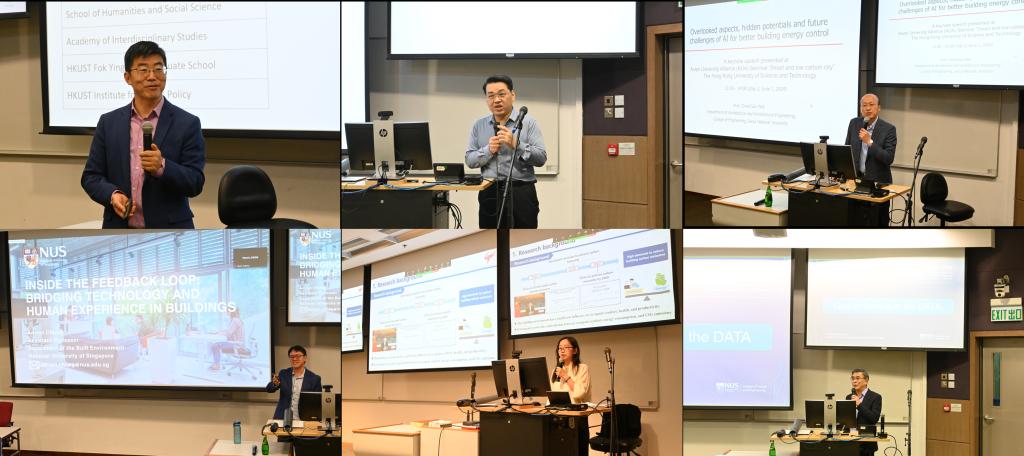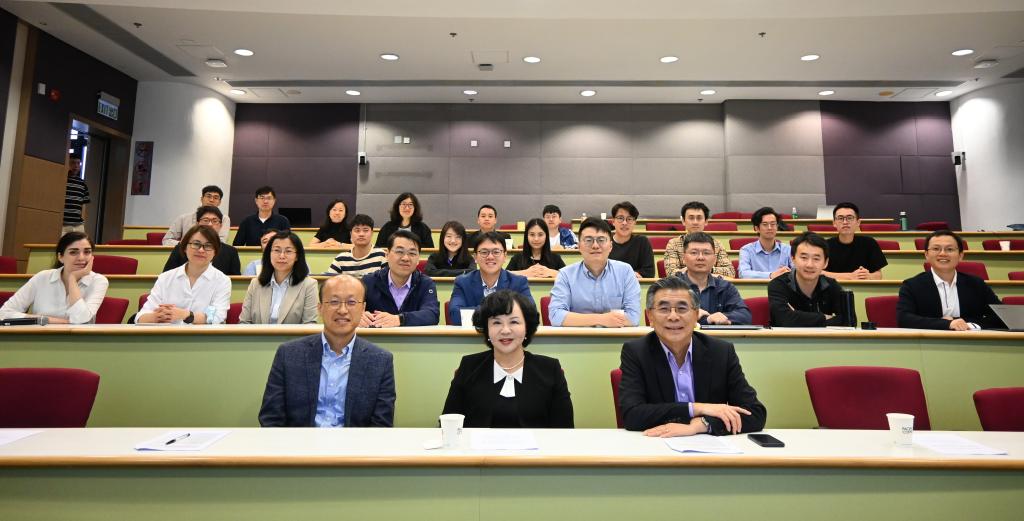Buildings and cities are a major energy consumer and carbon emitter. Substantially reducing carbon emissions from cities is critical to achieve our carbon neutrality goal. From 31 May to 2 June 2024, The Hong Kong University of Science and Technology hosted an AUA Seminar on Smart and Low Carbon City, inviting leading industry professionals and researchers from top Asian universities to share their research and to foster potential research collaborations on this topic.
To ensure a comprehensive discussion, the speakers were divided into eight different sessions, each tackling a specific aspect of the topic. The first day of the conference was primarily geared towards industry-related discussions. In the morning session, the concept of building-grid interaction was explored, with speakers examining how buildings can contribute to the integration of renewable energy sources into the power grid. In the afternoon, the focus shifted to energy-efficient data centers and the role of artificial intelligence in achieving high-performance, low-carbon buildings. The presenters delved into the potential applications of AI in optimizing energy usage and reducing the environmental impact of buildings.

In the morning of the second day, the speakers focused on the topic of smart buildings, exploring innovative technologies and strategies for creating intelligent and sustainable structures. The focus was expanded to include the broader concept of smart cities in the afternoon, specifically examining the application of Photovoltaic Integrated Green Roof technology, which aims to enhance the urban micro-climate and achieve significant carbon reductions on a city-wide scale.
The third day of the conference centered around the integration of the transportation and building sectors. The morning session on electric vehicles discussed their benefits, challenges, and potential solutions for their widespread adoption. The afternoon session explored user behaviors in electric vehicles, shedding light on how people interact with and utilize electric vehicles in their daily lives.
In addition to the panel discussions, the participants also made a field trip to the HKUST Photovoltaic Integrated Green Roof (PVIGR) experiment platform, which was located on the rooftop of the Academic Building at HKUST. Even though it was raining on the day of the field trip, the participants were actively engaged in passionate discussions.

With a total of 40 participants from 18 universities, research institutes, and enterprises, the seminar was quite fruitful. Prof. Adrian CHONG from National University of Singapore found the discussions and presentations during this seminar “enlightening and inspiring”, providing “new ideas and perspectives to further drive progress in the field of sustainable urban development.” “The connections established and knowledge shared during this seminar will undoubtedly have a lasting impact on the advancement of smart, low carbon cities,” Prof. Lin Borong from Tsinghua University said.
Source of Information: HKUST
Editing: AUA Secretariat
